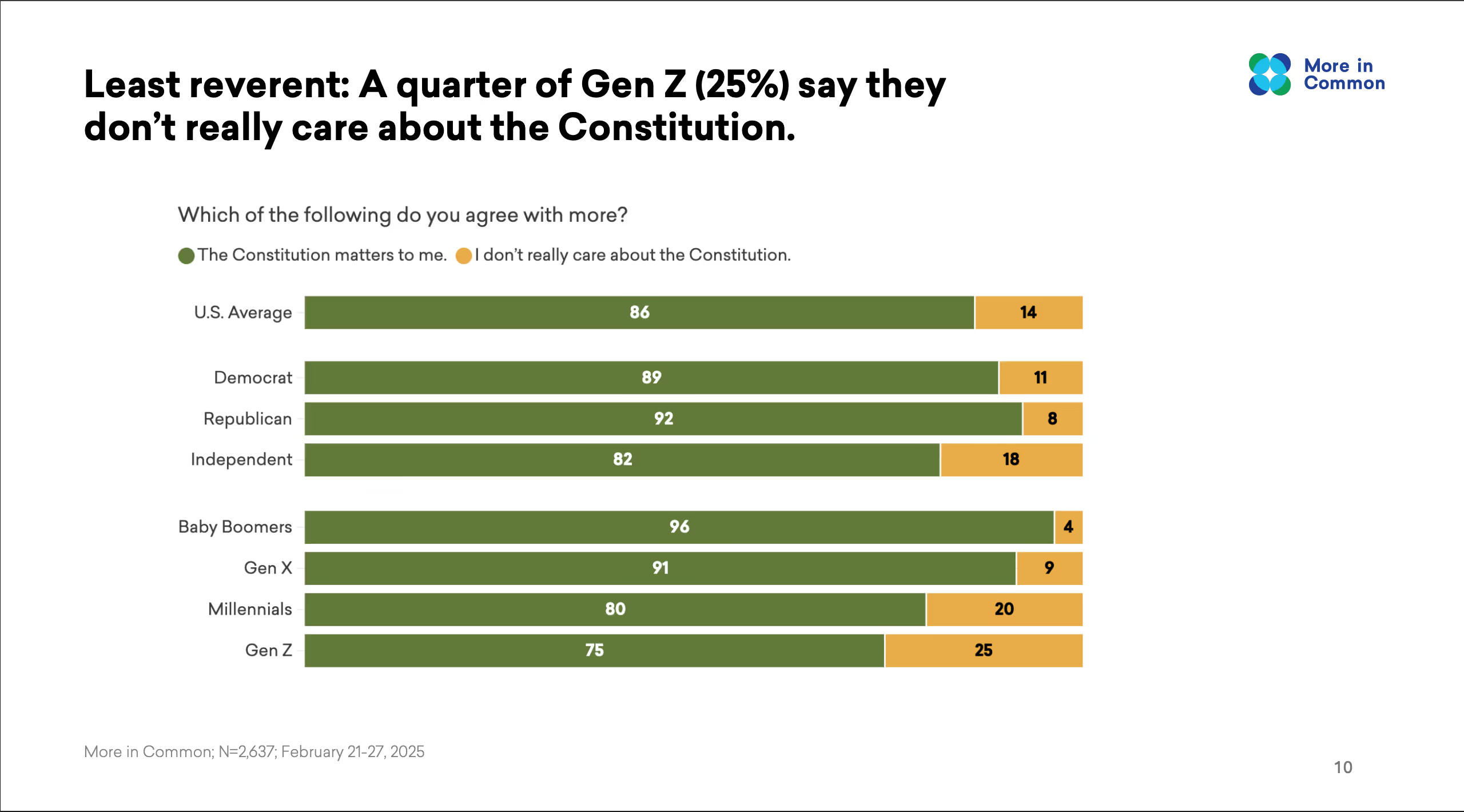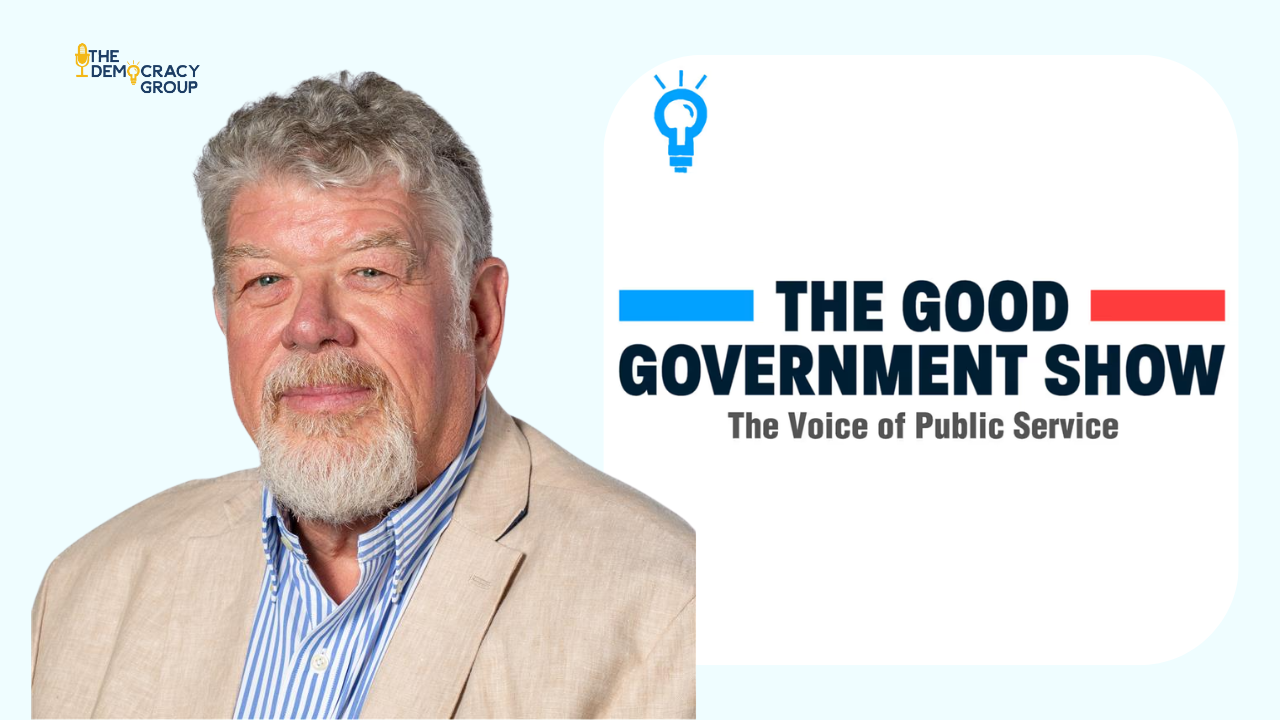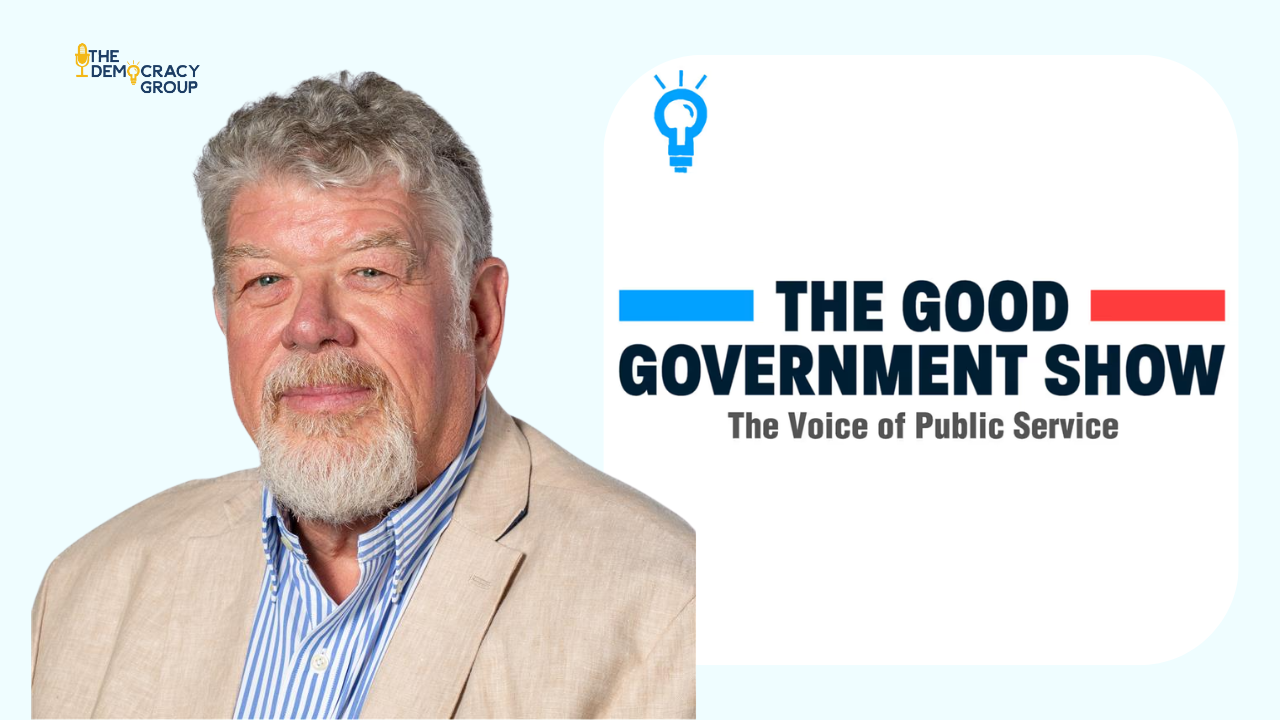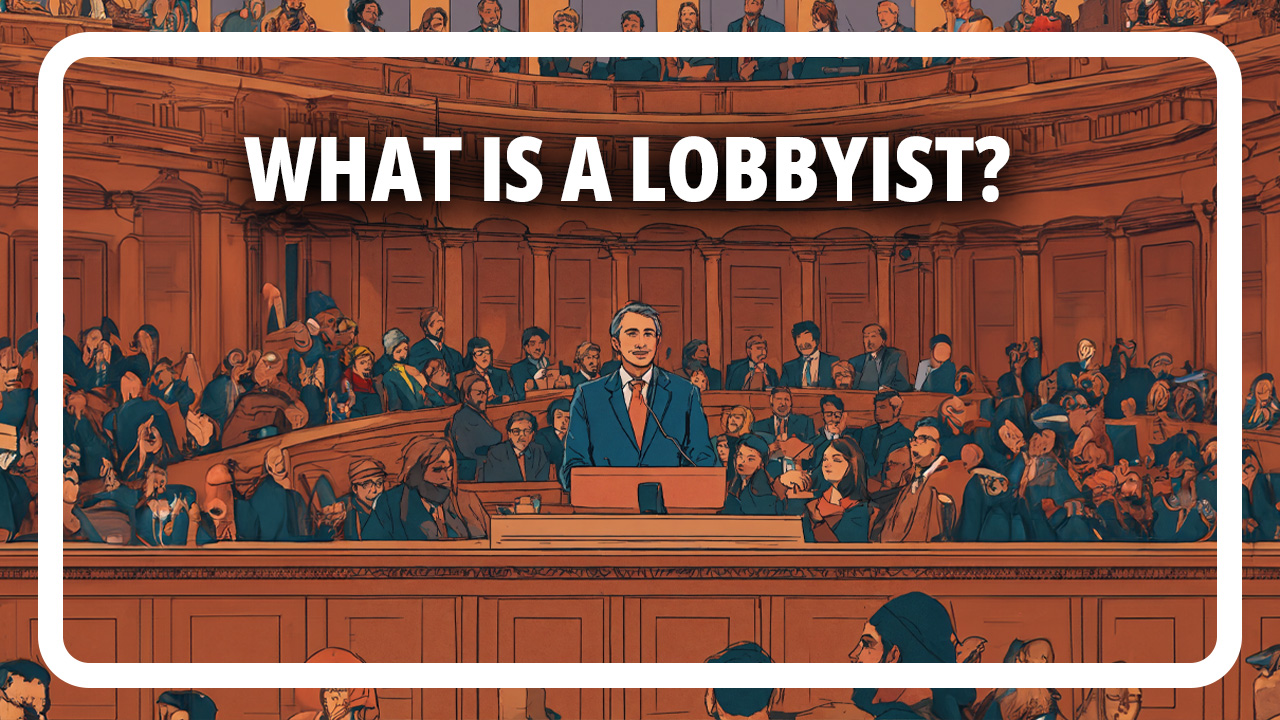
When headlines like “Gen Z is embracing dictatorship” began making the rounds, political analyst Rabhya Mehrotra and her colleagues at More in Common set out to take a closer look at Gen Z’s relationship with democracy.
Members of Gen Z are generally born between 1997 and 2012. The Newsweek study behind that headline found 40% of Gen Z Americans agreed that “rule by a strong leader, where a strong leader can make decisions without interference from the legislature or from the courts" would be a good system of government for the U.S. It also found 51% were "willing to give up some democratic powers if it made government function more effectively.”
But that wasn’t the full picture.
Roughly three months later, after surveying more than 2,000 participants and conducting two focus groups with Gen Z participants, the research nonprofit More in Common found valuable insights for their question, “Is Gen Z giving up on democracy?”
Key findings include:
Mehrotra said her research also uncovered signs of hope. Gen Z isn't inherently opposed to democracy – they just don’t feel heard in ours. And meaningful engagement with their concerns could change that. Mehrotra urged democracy groups and politicians alike to recognize Gen Z’s disillusionment as a potential opportunity, rather than a crisis.
“The biggest takeaway I can emphasize is that to make Gen Z invested in our democracy, we need to listen to their problems, rather than dismissing them,” she said.
Sean Shrader, a former student podcast fellow with The Democracy Group, said many of his peers feel frustrated by the lack of urgency and ineffective responses to today’s biggest societal challenges.
“Personally, I still remain very optimistic about protecting democracy, and recognizing its true value as a model of government that is citizen-driven,” Shrader said. “There is no easy solution, but I believe bipartisanship, alignment on clear goals that benefit everyone will help to restore belief in the efficacy of democratic principles.”

Various significant factors and historical events shape generations. For young adults in 2025, the Gen Z identity has largely been shaped by the pandemic and technological advances. This episode explores the root of the distinct differences between generations and how technology and generational change intertwine.
Subscribe to receive a biweekly collection of the hottest podcast episodes from the network, upcoming special events, expert features, and news from your favorite shows.
Subscribe to our NewsletterThis is Jessie Nguyen, The Democracy Group's Community Manager. Here are some of my favorite podcasts this week, check them out!

Protect Democracy is a nonprofit dedicated to stopping authoritarianism. Editor Amanda Carpenter joins this episode to dive into the challenges of imposing political consequences without political power and the way President Trump is following the authoritarian playbook to dismantle democratic institutions.

Host Mike Baranowski joins political theorist and author Leah Downey to break down monetary policies, including the Federal Reserve's legal mandate and its comparison to price stability in other countries. Downey also discusses her research on money neutrality and the intersection of economics and democracy.

Can a U.S. president shut down an entire agency? Can he spend money without Congress's approval?
This episode explores the separation of powers historically and how it's initially designed to work. Host James Wallner and Lee Drutman also examine the boundaries of presidential power in today's context, given current political conflicts.

Andy Borowitz is a writer and comedian. In 2001, he created The Borowitz Report, a satirical news column that has millions of readers around the world, for which he won the first-ever National Press Club award for humor. Borowitz is also known as the creator of the NBC sitcom The Fresh Prince of Bel-Air.

Dr. Elizabeth Sawin is the Director of Multisolving Institute, whose mission is to provide practical tools to address climate change, equity, health, well-being and biodiversity as connected issues. Previously, she co-founded the think tank Climate Interactive to develop tools for grappling with the complexity of the climate system.
Subscribe to receive a biweekly collection of the hottest podcast episodes from the network, upcoming special events, expert features, and news from your favorite shows.
Subscribe to our Newsletter
We welcome a new show to The Democracy Group! 🎉
Read Post
Host Dave Martin talks about “good government” stories, why they’re absent from mainstream media and what the show has planned for 2026.
Read Post
What is a lobbyist—and how does lobbying really work? Explore direct, indirect, and shadow lobbying through real-world examples to understand how power, money, and citizen action shape public policy in American democracy.
Read Post